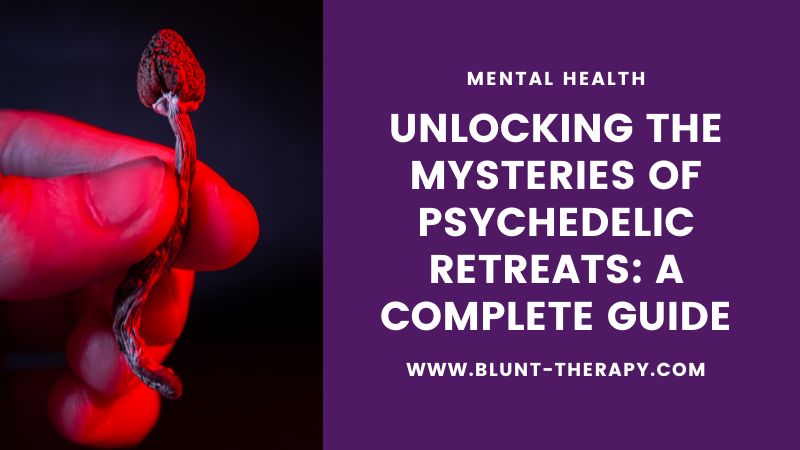Table of Contents
Affiliate link notice: As an affiliate of BetterHelp and other third-party vendors, We will receive compensation if you make a purchase using the links provided on this page. For more information, visit our disclosure page.
Last Updated on December 14, 2021 by Randy Withers, LCMHC
The topic of narcissism has skyrocketed in popularity in recent years.
It’s easy to blame Trump, but the truth is that we’ve been moving in that direction since at least 2011 when the novel 50 Shades of Grey first introduced a Hollywoodized version of Narcissistic Personality Disorder to tweens.
A decade later, you can’t toss a dead squirrel without hitting dozens of articles (like this one), memes, and videos from self-proclaimed “Narcissistic Abuse Recovery” experts who seek to shame, vilify, and expose the narcissist for what he truly is.
It’s strange. We live in a world that is hella woke, uber-politically correct, and socially just, yet it’s still okay and even encouraged to excoriate men (and sometimes women) who exhibit the criteria of Narcissistic Personality Disorder.

Why You Shouldn’t Diagnose Your Ex With Narcissistic Personality Disorder
Setting aside the fact that NPD is a mental disorder deeply rooted in childhood trauma— is this really socially acceptable behavior? Can you think of any other mental health condition that is vilified so freely?
Look, I get it. Narcissists can be awful. Their reputations are well-earned.
But there is a dangerous and slippery slope forming here, and we should all be a little less eager to go sliding off of it without considering the consequences.
The slope in question is the normalization of attacks on the mentally ill. And while my focus thus far has been on Narcissistic Personality Disorder, my larger argument is this:
An attack on one type of mental disorder is an attack on all types of mental disorders.
While people with Narcissistic Personality Disorder are capable of some truly terrible behaviors, they are nonetheless people who suffer from a mental illness that is largely beyond their control.
Those with a different point of view might take issue with what I have just said. NPD is a personality disorder, they would say. That’s totally different than a mental disorder like depression.
But they’d be wrong. The American Psychiatric Association classifies personality disorders as a type of mental disorder. The Mayo Clinic notes this as well, and research published in the British Journal of Psychiatry notes that their distinction is arbitrary.
So, while people with Narcissistic Personality Disorder are capable of some truly terrible behaviors, they are nonetheless people who suffer from a mental illness that is largely beyond their control.
Save The Diagnosis For The Clinicians
I’m certainly not here to stand up for narcissists. That’s not the point. I’m also not here to justify their abusive behavior or their disregard for others. People should be called out for awful behavior. People should be held accountable.
But when laypeople use clinical terminology to describe ex-lovers (which happens all the time), it comes off as more than a little hypocritical.
When relationships end, we can’t help but want to find external causes for it. That way, we don’t have to look at our own role. It’s reassuring to dismiss an ex as a “narcissist.” They were abusive and they cheated and they lied so they must have Narcissistic Personality Disorder!
Right?
Actually, no. At least, not in most cases. They could just be a garden variety jerk.
They might be perfectly fine in other relationships but for whatever reason, they were toxic in yours.
You’ll probably never know and it’s arrogant to think you will.
But the biggest reason why I say no is that most people don’t understand how clinical diagnosis works.
For one thing, you don’t just flip open the DSM5 and start assigning clinical criteria to people you’ve slept with. That’s just silly.
You’re not objective, you’re not accounting for confirmation bias, and you don’t have any training. If you did, you’d know not to do it in the first place.
Bloggers Make The Problem A Lot Worse
I’ve read tons of articles online where writers diagnose their exes with Narcissistic Personality Disorder. Never once have I seen them explore how they contributed to the downfall of their relationship. Not once. Their analysis is entirely one-sided.
It’s always the same story. I was minding my own business when all of a sudden this man (or sometimes a woman) rolled into my life, love-bombed me, and the next thing I know I was embroiled in a toxic cacophony of gaslighting and dysfunction.
The victim’s mentality at work in so many of these articles is disturbing, to say the least. It’s such an unhealthy way to think about things.
Of course, the counter to my argument is this — why shouldn’t they write about narcissistic exes? They are performing a public service. Their words are a warning to each and every one of you about the dangers of dating that monster.
So yes, people certainly have a right to write this stuff. And it is often the case that readers glean new insights about their own relationships by reading the cautionary tales of others.
But it’s still irresponsible, if for no other reason than the ethical quagmire that comes with diagnosing someone you used to have sex with. A licensed professional would be called in front of a state board if they did that.
Final Thoughts
The reason clinical diagnoses exist in the first place is to conceptualize the nature of a problem and to guide the treatment of it. They were never designed to be weaponized, nor were they created for laypeople to toss around the internet like confetti.
Does Narcissistic Personality Disorder exist? Of course. Does narcissistic abuse occur? Absolutely.
Just not in the numbers you’d think. Judging from all the articles and Facebook support groups and memes that devote themselves exclusively to this issue, it’s easy to assume that we’re dealing with a straight-up epidemic of narcissistic personality disorder. In reality, NPD affects about 0.5% of the population, or 1 out of every 200 people.
That’s pretty rare.
By themselves, people are extraordinarily complicated. In relationships, people are even more impossible to understand. It’s actually amazing that any of them last for more than a few months and it accounts for why so many of them eventually fail.
And when people we love hurt us, and when our relationships end, it’s only natural to look for simple explanations to complicated problems that we will likely never understand.
Diagnostic labels only tell part of the story, and often that story is a work of pure fiction.
Going forward, if you are tempted to label an ex with a mental illness, consider the virtues of examining your role in the relationship’s end as well. That is, after all, how we grow.
If a recent breakup has left you confused, bitter, or feeling betrayed, consider the benefits of online therapy. Sites like BetterHelp are affordable, confidential, and convenient alternatives to traditional face-to-face therapy. With either of these services, you’ll have access to your very own licensed therapist who is available via video, chat, or phone, all for a low monthly fee.
References
- Sorry, But Your Ex Probably Isn’t a Narcissist
- Your Ex Probably Doesn’t Have A Personality Disorder
- NARCISSIST OR A**HOLE? KNOW THE DIFFERENCE
- Reflecting After Divorce: Maybe I Was The Narcissist & Not My Ex
- Think Your Ex Is A Narcissist? Chances Are They’re Not…









